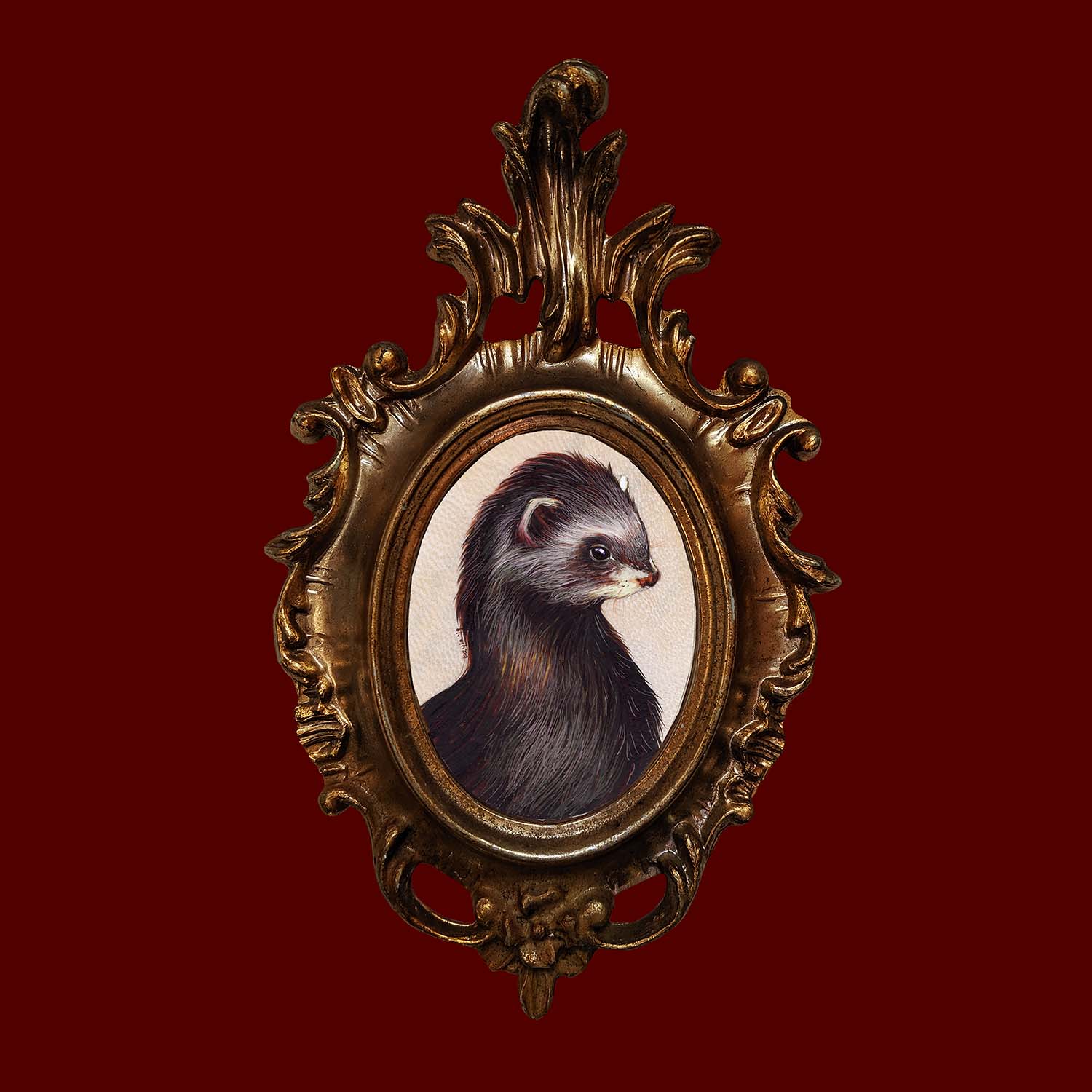
Last Common Ancestor: Mustela putorius
The last common ancestor of the ferret
Traditional Early Renaissance miniatures developed out of the medieval tradition of manuscript illumination, and depicted intricate portraits of family and loved ones. These objects were gifted and exchanged, sometimes being intended only for the eyes of the recipient, and were housed in ornate frames or lockets. Originally mounted on symbolically selected playing cards (Kings and Queens), “Last Common Ancestor” displays the most recent wild species of domesticated plants and animals on various museum and library ephemera. Vintage cataloging index cards from books related to biology, evolution, and animal domestication are used as a backing to which genuine calfskin vellum is adhered. The vellum is then polished using a fine pumice powder, and the portraits are executed in a manner close to their roots, using tiny brushes, watercolor, and gouache. The size of these precious objects is not what traditionally categorized them as miniatures, but it was the technique that was considered the defining factor. With a modern twist to an old art form, “Last Common Ancestor” illustrates the origin of domesticated species in a tender and nostalgic way, as though the tame species is fondly looking back or admiring a member in the phylogeny of their family tree.
The last common ancestor of the ferret
Traditional Early Renaissance miniatures developed out of the medieval tradition of manuscript illumination, and depicted intricate portraits of family and loved ones. These objects were gifted and exchanged, sometimes being intended only for the eyes of the recipient, and were housed in ornate frames or lockets. Originally mounted on symbolically selected playing cards (Kings and Queens), “Last Common Ancestor” displays the most recent wild species of domesticated plants and animals on various museum and library ephemera. Vintage cataloging index cards from books related to biology, evolution, and animal domestication are used as a backing to which genuine calfskin vellum is adhered. The vellum is then polished using a fine pumice powder, and the portraits are executed in a manner close to their roots, using tiny brushes, watercolor, and gouache. The size of these precious objects is not what traditionally categorized them as miniatures, but it was the technique that was considered the defining factor. With a modern twist to an old art form, “Last Common Ancestor” illustrates the origin of domesticated species in a tender and nostalgic way, as though the tame species is fondly looking back or admiring a member in the phylogeny of their family tree.